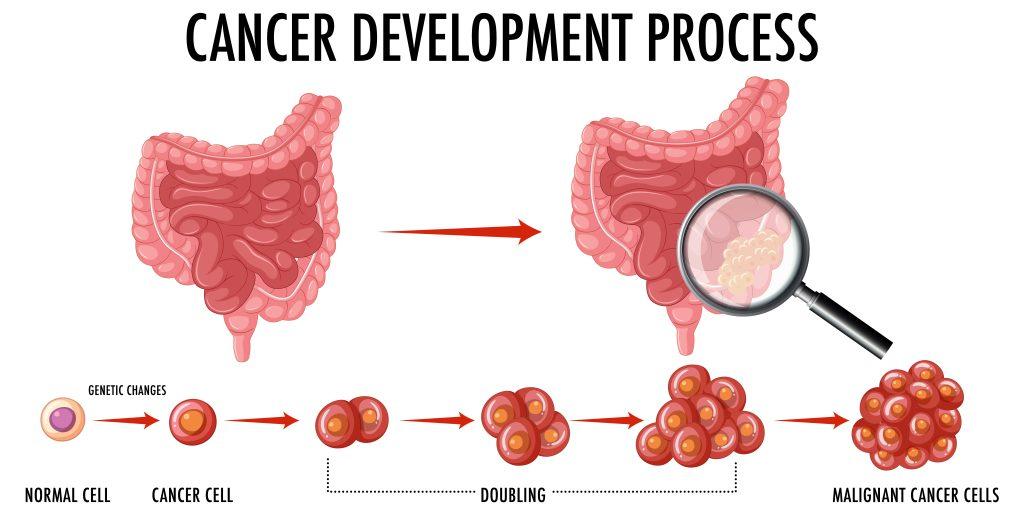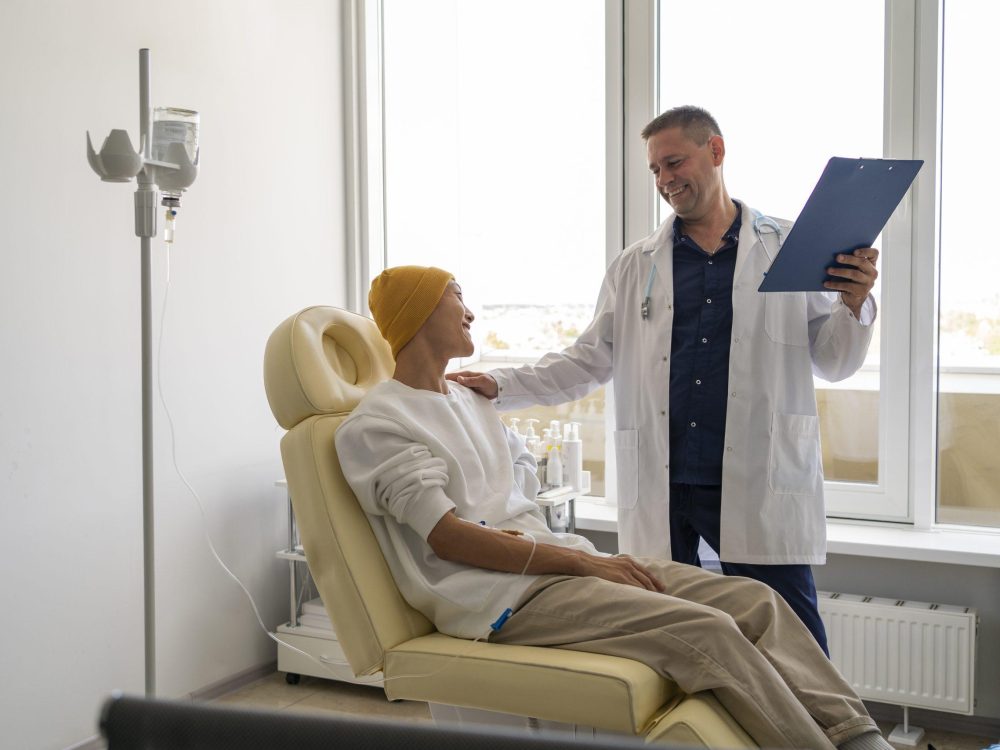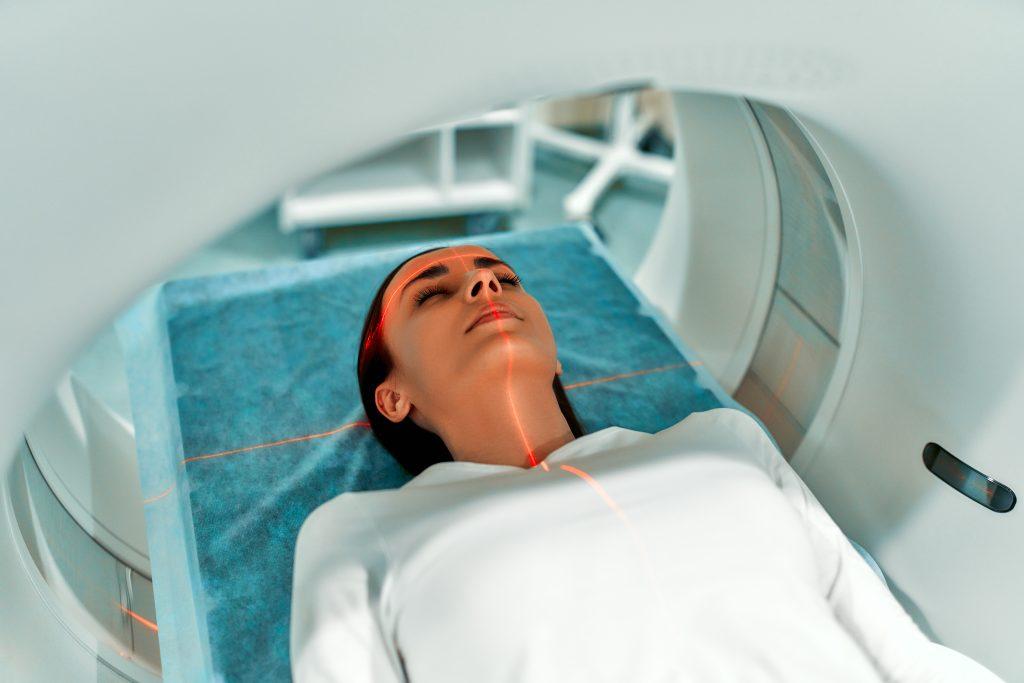Colorectal Cancer Treatment in Hyderabad

Colorectal cancer is a type of cancer that occurs when cells in the colon or rectum grow out of control. Sometimes these cancers can be called colon cancer or rectal cancer, depending on their location. The colon is the large intestine, while the rectum is the passage that connects the colon to the anus. Colon and rectal cancers have many common features and thus are often grouped together.
Colorectal cancer usually begins as a noncancerous growth of cells called polyps. Over time, these polyps can develop into cancer. Screening tests can help to find and remove polyps before they turn into cancer. Screening also aids in the detection of colorectal cancer at an early stage, when treatment is most effective. If you suspect colorectal cancer or need screening for early detection, consult the best gastroenterologist in Hyderabad, Dr K V Dinesh Reddy for accurate diagnosis and appropriate treatment.
What is the cause and risk factor for colorectal cancer?

The cause of colorectal cancer is not fully understood but is believed to occur due to genetic and environmental factors.
Certain factors can increase the risk of developing colorectal cancer. These include:
- Advancing age (50 years and above)
- High intake of red or processed meats in the diet
- Regular alcohol consumption
- Leading a sedentary lifestyle with low physical activity levels
- Being overweight or obese
- Having a personal or family history of colon polyps or cancer
- History of inflammatory bowel disease

What are the symptoms of colorectal cancer?

Symptoms of colorectal cancer may vary, and in some cases, there may be no symptoms at all, especially in the early stages. However, when symptoms do arise, they may include:
- Changes in bowel habits
- Blood in or on the stool
- Diarrhea
- Constipation
- Feeling like the bowel doesn't fully empty
- Persistent abdominal pain, cramps, or discomfort
- Unexplained weight loss
- Fatigue or tiredness
- Anemia
If you experience any of these symptoms, it is important to consult a doctor. Remember that these symptoms can be caused by factors other than cancer. To determine the underlying cause and get an accurate diagnosis, it is recommended to consult with the best gastroenterologist in Hyderabad.
How is colorectal cancer diagnosed?
For individuals who do not have symptoms, screening tests are recommended to look for disease. As discussed colorectal cancer mostly develops from precancerous polyps, screening tests can find them before they turn cancerous.
When a person has symptoms, diagnostic tests are advised to find out the cause of the symptoms.
The following are common diagnostic procedures for colorectal cancer:
- Colonoscopy:
The doctor uses a colonoscope to examine the colon and rectum, remove polyps, and perform biopsies. It is a highly accurate procedure.
- Blood stool test:
This checks for blood in a stool sample, but a positive result does not always indicate cancer.
- Stool immunochemistry (fecal occult blood test):
It detects hidden blood in the lower colon using a stool sample.
- Stool DNA test:
This checks for DNA markers shed by colon cancer or precancerous polyps in a stool sample. A positive result requires a colonoscopy.
- Flexible sigmoidoscopy:
A flexible tube is used to examine the rectum and sigmoid colon.
- Barium enema X-ray:
Barium dye is introduced into the bowel to highlight any unusual features, followed by a colonoscopy if needed.
- CT colonography:
It produces images of the colon but requires a colonoscopy for further investigation.
- Imaging scans (ultrasound, CT, or MRI):
These scans determine if cancer has spread to other parts of the body.
Please note that these procedures may have rare complications, and it is important to consult with a healthcare professional for an accurate diagnosis. Dr. K V Dinesh Reddy is a highly experienced gastroenterologist, known for providing the best colorectal cancer treatment in Hyderabad. With extensive expertise in the field, he employs exceptional methods for detecting and diagnosing the presence of cancer.
Colorectal Cancer Treatment in Hyderabad

The most appropriate treatment approach for colorectal cancer depends on various factors, including tumor size, location, stage of cancer, recurrence, and overall health of the individual.
Treatment options may include the following:
Surgery
It is the most commonly used treatment for colorectal cancer and is often effective in curing the disease, especially in its early stages. Its goal is to remove cancerous tissue, including tumors and affected lymph nodes, and prevent the cancer from spreading.

- For colon cancer,
the specific part of the colon affected (right colon, left colon, transverse colon, or sigmoid colon) is surgically removed.
- In the case of rectal cancer,
most patients are given radiation therapy and chemotherapy as the initial treatment. Surgery is typically performed after 6-8 weeks of radiation. However, for patients with early-stage symptoms, surgery may be performed as the initial treatment.
- In cases where the cancer is located in the lower part of the rectum and anus,
a portion of the intestine may be brought out through the skin (stoma) and removed.
Depending on the stage of the tumor and the patient’s overall health, chemotherapy and radiation therapy may also be required.

Chemotherapy
It involves the use of drugs to destroy cancer cells throughout the body. It can be administered before surgery to shrink tumors, after surgery to eliminate remaining cancer cells, or in later stages to relieve symptoms.
Targeted Therapy
This utilizes drugs that target specific proteins to slow down or prevent the growth of cancer cells. This approach typically has milder side effects compared to chemotherapy.
Immunotherapy
It is a drug-based treatment that helps the immune system recognize and eliminate cancer cells. It may benefit individuals with advanced colorectal cancer but can have adverse effects on the body’s cells.
Radiation Therapy
This uses high-energy radiation beams to destroy cancer cells and prevent their multiplication. It may be recommended before rectal cancer surgery or combined with chemotherapy (chemoradiation).

Ablation
This procedure involves using various techniques, such as microwaves, radiofrequency, ethanol, or cryosurgery, to destroy tumors without removing them surgically.
In cases where colorectal cancer has spread beyond the colon (stage 4), and cancer cannot be cured palliative care is provided, to manage the symptoms. These include:
- Surgical removal of blockages
- Reducing tumor size with radiation or chemotherapy to reduce tumor size
- Pain management
- Counselling support
- Hospice care
Best Doctor for Colorectal Cancer Treatment in Hyderabad

Dr. K V Dinesh Reddy
MBBS; MS (Gen.Surg); DNB (Surg.Gastro)
If you suspect the presence of polyps or colon cancer and are seeking the best colorectal cancer treatment in Hyderabad, you can visit our clinic for further assistance.
Dr K V Dinesh Reddy is a highly experienced specialist in the field, and GI oncological surgeries, including Colorectal, Gastroesophageal, and Hepato-Pancreato-Biliary cancers. You can trust our expertise and dedication to providing exceptional care for your colorectal cancer treatment.
Frequently Asked Questions
Here are answers to some of the questions you might have about Colorectal Cancer
Doctors diagnose colorectal cancer through various tests. A common method is a colonoscopy, where a thin tube with a camera is inserted into the colon to check for abnormal growths. Another way is a CT scan, which creates detailed images of the colon. Biopsies are done by taking small tissue samples for examination. Blood tests can also help detect certain markers. These tests help doctors identify if cancer is present, its location, and how advanced it is.
Yes, there are alternative therapies for colorectal cancer. Some people explore options like herbal treatments, acupuncture, or special diets. However, it’s important to know that these alternatives haven’t been proven to cure cancer. They might be used alongside conventional medical treatments, but it’s crucial to discuss any alternative therapies with your doctor. Conventional treatments like surgery, chemotherapy, and radiation remain the mainstays for treating colorectal cancer based on scientific evidence.
Chemotherapy can cause various side effects. These include nausea, vomiting, fatigue, and hair loss. It might also affect the body’s ability to make blood cells, leading to an increased risk of infections and bleeding. Some people might experience changes in appetite, weight, or mood. Chemotherapy can affect healthy cells too, which might lead to mouth sores or digestive issues.
Yes, steps can be taken to prevent colorectal cancer. Maintaining a healthy lifestyle with balanced diet and regular exercise can lower the risk. Avoiding smoking and limiting alcohol consumption also helps. Regular screenings, like colonoscopies, can detect and remove precancerous growths early. If you have a family history, genetic counseling might be beneficial. While prevention isn’t guaranteed, these actions can significantly reduce the likelihood of developing colorectal cancer.
Yes, colorectal cancer can be hereditary. This means that it can run in families due to certain gene changes that increase the risk. If close relatives, like parents or siblings, have had colorectal cancer, your risk might be higher. Genetic testing and counseling can help identify if you have inherited such gene changes. However, most cases of colorectal cancer are not solely caused by genetics and can also be influenced by lifestyle and environmental factors.


